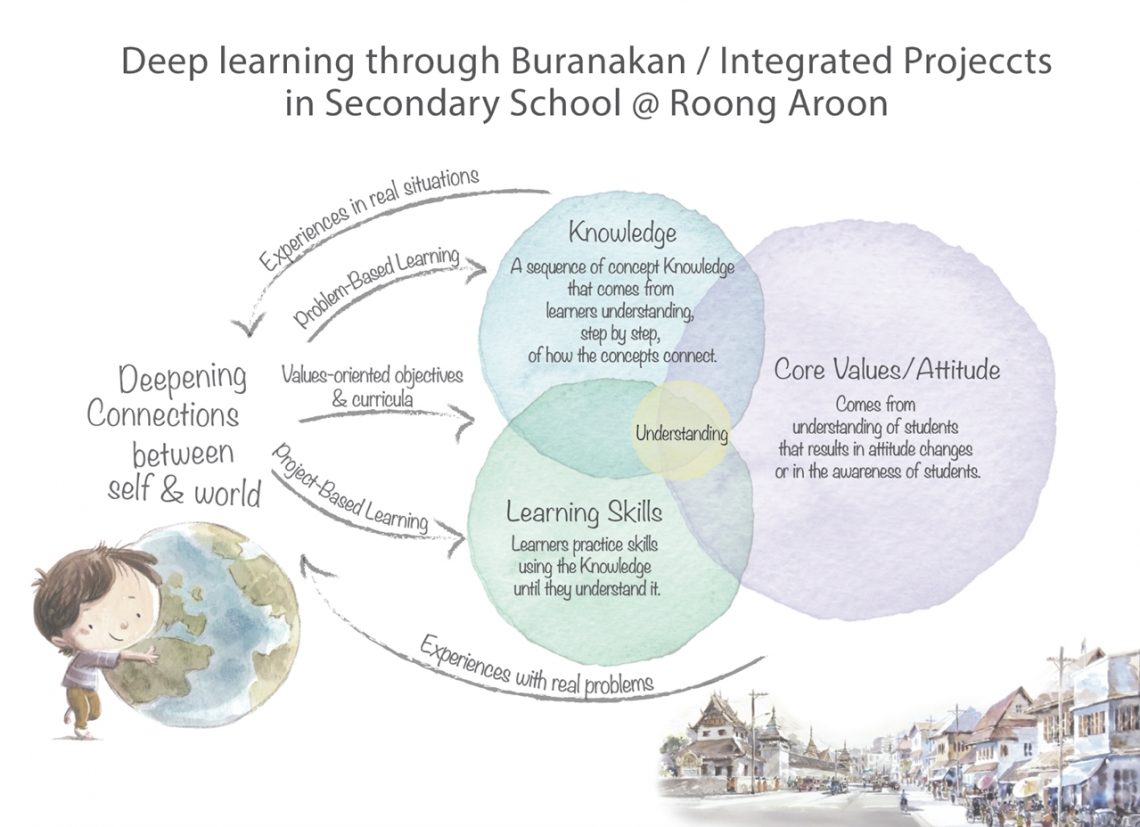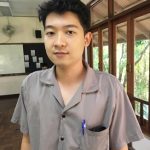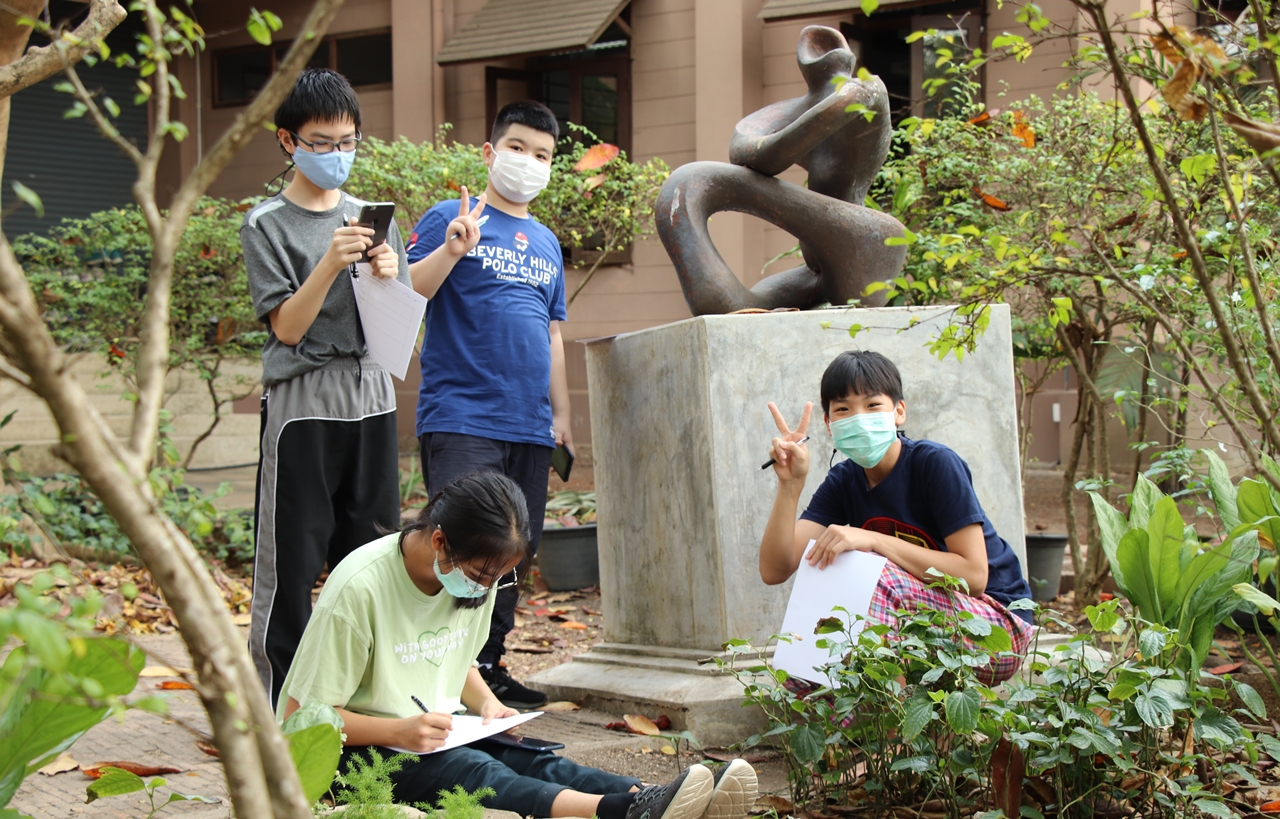
Buranakan in Grade 9: Deep Learning through Integrated Project Work
By Robin Martin, Scholar of Corporate Communications Department, Roong Aroon School Foundation
Buranakan is a values-oriented curriculum that uses holistic approaches to teaching and learning to guide students toward deeper learning through inquiries about the local community or environment, starting from where the students are.
This case study focuses on Grade 9 in summer 2020 when Buranakan students were engaged in learning around the theme of “a new norm of balanced life and nature.” Students were investigating environmental problems created by human beings, which they linked to their own actions too. Throughout the term, they worked together and led their own inquiries, working at their own pace with peers and their teacher’s guidance. By the end of the term, they were able to invent and present solutions to the real-world problems they had investigated, with an attitude of contributing to the community by improving the environment.
The Context of Roong Aroon School
Roong Aroon has an approach to learning that allows for newness every term. For example, the school principals or directors may present a curricular approach (like learning spaces or competence-based learning) in non-direct ways that point teachers or teams of teachers toward their own sense-making, to discover how new concepts may be useful in their practices.
Roong Aroon teachers learn to notice and appreciate their students’ full capacities for acquiring knowledge, skills, and values through experience, observations, and collaborative interactions. They must learn to understand the importance of their own mindsets, the students’ daily dynamics inside and outside of classrooms, and how to respond with flexibility to changing real-world situations.
Teachers (in math, science, English, music, arts/crafts, Buranakan, etc.) experiment with tools for advancing their own approaches to teaching and learning. They plan and develop “roadmaps” (unit plans to show the directions for the coming term) that are designed to connect students with learning for a purpose, a purpose that the students themselves see as valuable and worthwhile for pursuing.

Arriving at Roong Aroon in 2017, Pongsakorn Rotchananukunphong (known by his Thai nickname, Teacher Mod) began as a Grade 12 Buranakan teacher. In 2019, he shifted to work with Grade 9. As a teacher, his aims focus around skills and attitudes: classroom management, communication skills, teamwork, being happy with people. Mod works with his students “to make the direction of the class.” Throughout the term, he creates collaborative spaces for students that allow their motivation to blossom, and encourages them to continually take their inquiries to a deeper level.
Students collaborate with Mod to choose the elements of regional ecological problems that they find as most concerning. Together, they plan ways to investigate further and propose possible solutions, as they uncover the value of what they are studying.


